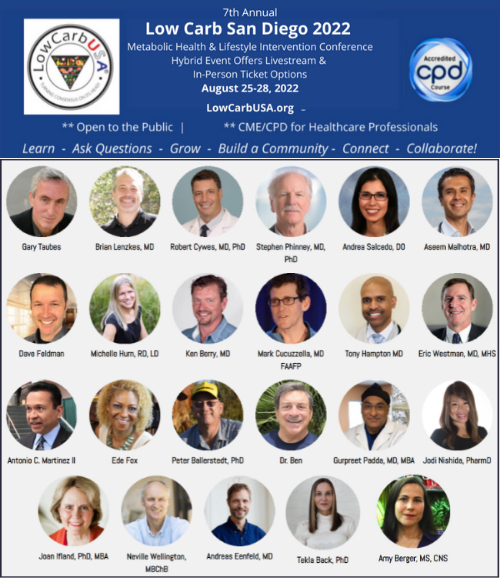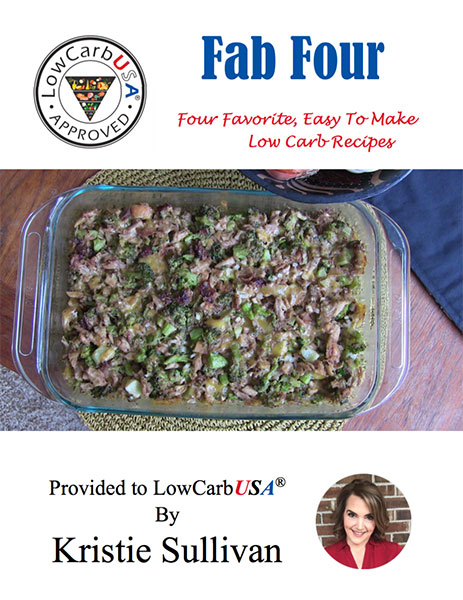Dr. Jodi Nishida to Deliver Presentation at Upcoming 2022
7th Annual Summer Conference the Symposium for Metabolic Health
Dr. Jodi Nishida is a Doctor of Pharmacy and an accredited Metabolic Healthcare Practitioner (MHP), who’s been in healthcare for more than 25 years.
After experiencing the ketogenic lifestyle’s effect on her own autoimmune condition, Jodi decided to build a keto-based medical practice, and she’s now taking what she’s learned and sharing that knowledge with practitioners and patients.

Jodi is one of 23 expert speakers scheduled to present on the main stage at the 2022 Symposium for Metabolic Health, which will take place August 25-28.
Jodi’s presentation will focus on The Four Pillars of a Successful Low Carb, Clinical Practice – Providing Comprehensive Care and Meeting Patients’ Needs, and will include valuable information for practitioners interested in learning how to build a better practice.
The conference is open to the public as well as practitioners, and features both in-person and virtual options. Attendees will learn from world-renowned experts about the overwhelming evidence supporting therapeutic carbohydrate reduction (TCR) and the use of TCR in addressing, and even reversing, type 2 diabetes, hypertension, fatty liver, PCOS, CVD, epilepsy, TBI, Alzheimer’s, neurological pathologies, mental health conditions and much more, as well as stabilizing blood sugar and reducing the risk of complications in type 1 diabetes.
Information presented at the conference will be of great value to practitioners as well as to the layperson interested in learning more about many different ways they can improve their health and quality of life through therapeutic carbohydrate reduction.
Jodi said she is looking forward to explaining how patients can make more educated choices when looking for a low-carb practitioner, or seeking information pertaining to their health.
“Laypeople are going to learn what they need to be looking for in a low-carb doctor, what services they should be getting, and many other aspects of the quality of care they are entitled to,” said Jodi.
Attendees can obtain up to 28 CME credits, and CEU credits are available for NASN practitioners. In addition to four jam-packed days of expert presentations, In-person attendees will have the opportunity to meet and talk to presenters and other attendees before and after presentations, as well as having the option to attend spectacular low-carb dinners.
Over the last few years, Jodi has helped more than 1,000 patients realize the benefits of clean, medically-guided keto. During that time, she has developed an understanding of the foundational elements of a successful low-carb, clinical practice, and she has seen glaring signs that this information can benefit others in the field.
In her presentation, The Four Pillars of a Successful Low Carb, Clinical Practice – Providing Comprehensive Care and Meeting Patients’ Needs, Jodi plans to discuss in her presentation include the following:
- Clinical Aspects
- Metrics
- Psychology
- Attracting Patients
“The clinical component requires a practitioner to be very well versed in medical conditions from head to toe,” said Jodi. “They need to understand food, and they are going to teach their patients what and how to eat. They also must be very familiar with medications and know how to titrate and deprescribe.”
“Then there are the metrics, continued Jodi. “What are they going to use to track you? What labs? Can they even order labs? Because if they’re not a real doctor, they can’t order labs. Are they going by pounds? Are they going by inches and body composition? What types of other testing do they implement in their practice to help patients meet their health goals?”
The third pillar is the psychology component, Jodi said. “The truth of the matter is, if your low carb provider cannot help you through your eating behaviors and your food addictions, you’re never going to be able to do this long term. So the training, skill set, and tools to help patients is extremely important.”
Jodi plans to do a deep dive into each of the first three pillars, and then she plans to explain the fourth pillar, which focuses on ways practitioners can reach and engage with potential patients as they build their practice.
“A lot of people have approached me over the last four years and they have literally asked me to franchise my practice,” said Jodi. “I’ve had new pharmacists come up to me and offer to pay me thousands of dollars to teach them to do exactly what I’m doing. The last pillar is how to get patients, because you can start a practice, but if you don’t know how to recruit people or advertise, it’s never going to last. So what I talk about in this section is, how to network, how to build your low carb community. I will discuss social media, what you can do with that, and how you should be responsibly posting. I will also be discussing potential collaborations, because I collaborate with a lot of restaurants and food businesses, as well as USC gym in Hawaii. And I’m going to be giving ideas and tips on why this is important, and, and how these collaborations can be extremely valuable to your patients.”
Jodi has certifications in ketogenic nutrition, cardiovascular disease management, pharmacogenomics, and medication management, and she works closely with every patient to tailor their dietary plan to their medications, medical conditions, lifestyle, and socioeconomic situation. Jodi is also in training for processed food addiction recovery, something she describes as “America’s true pandemic”.
“I’m really looking forward to this conference because I always learn so much from my colleagues,” said Jodi. “And there’s always a great sharing of ideas in the Q&A sessions after each talk. The value I take away from these conferences is well worth me shutting down my practice to attend.”
When asked why someone should consider attending a low-carb conference in person, Jodi responded immediately. “Healthcare is evolving. The definition of insanity is when you continue to do something the same way and expect a different result. In this community, we’re on the leading edge of change. And so whether you’re a provider or a patient, it’s so valuable to attend this because it has applications for everyone. Everyone’s got health issues, and the health care model is slowly evolving. We are fortunate with these conferences to be on the very leading edge. And it’s also fun. The people are great, and there are all these incredible speakers. We’re there because we believe in what we do, and we’re trying to help people. That’s what’s unique about it.”
SMHP Metabolic Health Practitioner (MHP) Accreditation
Jodi was one of the first to earn the Metabolic Health Practitioner Accreditation from the Society of Metabolic Health Practitioners (MHP). The accreditation certifies that the practitioner has met the SMHP standards of understanding competence in the practice of dietary and lifestyle interventions that address metabolic health. She talked about why this distinction is important for both practitioners and their patients.
“It’s extremely important, in my opinion, because there’s still so much pushback from the medical community about keto. People see things on social media that are not a good representation of what a well-formulated ketogenic diet looks like, and they get really scared for their patients.”
Jodi says the ketogenic diet gets a great deal of undeserved criticism, and that education is needed to change the tide. She believes that education and backing from an organization like the SMHP can go a long way toward accomplishing just that.
“I’ve been very focused the last couple years on trying to reverse or fix that mindset because it is so incorrect. I think being accredited helps to alleviate some of that fear. I now have a lot of doctors that are actually referring their patients to me. And initially, they did so very hesitantly. But when they see what we’re able to accomplish for their patients, they feel much greater confidence. The accreditation provides education as well as a greater sense of legitimacy.”
Standard of Care and Clinical Guidelines
Jodi praised the SMHP for its efforts to make therapeutic carbohydrate reduction a part of the Standard of Care in the treatment of many medical conditions, including type 2 diabetes, NAFLD, hypertension, CVD, and others.
I don’t think most medical professionals truly understand the definition of standard of care,” she said, “but the SMHP has done such a great job of creating a template for us to follow, as well as providing us with continuing education opportunities to continue to evolve and learn and grow.”
She praised the SMHP for its development of the Clinical Guidelines, a general protocol for implementing therapeutic carbohydrate restriction as a dietary intervention in hospitals or clinics. These guidelines are meant to be applied as a dietary intervention for specific conditions for which carbohydrate reduction has been shown to offer therapeutic benefits.
Treating the Individual
Jodi went on to stress that as important as guidelines are, practitioners can never lose sight of the importance of treating the individual patient.
“At the end of the day, what matters most is how anything affects each patient individually. We can become very robotic in medicine, look at lab results, and prescribe medications, or we can start to look at the whole patient, and really see that what drives illness and disease is a very complex combination of environment, socio-economic factors, stress, relationships, work environment, diet, exercise, or lack of exercise, and so on.”
“So we can either continue to be robotic, and do things the same way we’ve done for the last five decades, which hasn’t gotten us anywhere, or we can tweak what we’re doing, and really start to focus on all the different roots of the problem with each patient. And that brings me back to the individual, it’s all about the n of 1.”
As part of her focus on the individual, Jodi devotes a full half hour to each patient appointment, and 45 minutes for the initial appointment. She is troubled by the model that has many doctors spending just five to seven minutes on each patient consult.
“My appointments are all 30 minutes long, and I bill insurance,” she said. “I believe it’s important, because that’s how I’m going to be able to give care to everyone. So even Medicaid patients, even at a 30-minute appointment, you can make a great living.”
We encourage you to come learn from Dr Jodi Nishida and the entire panel of presenters at the 2022 Symposium for Metabolic Health, August 25-28, either in person or virtually from wherever you are. The video recordings are all available right away and for an indefinite amount of time for you to view and review.


